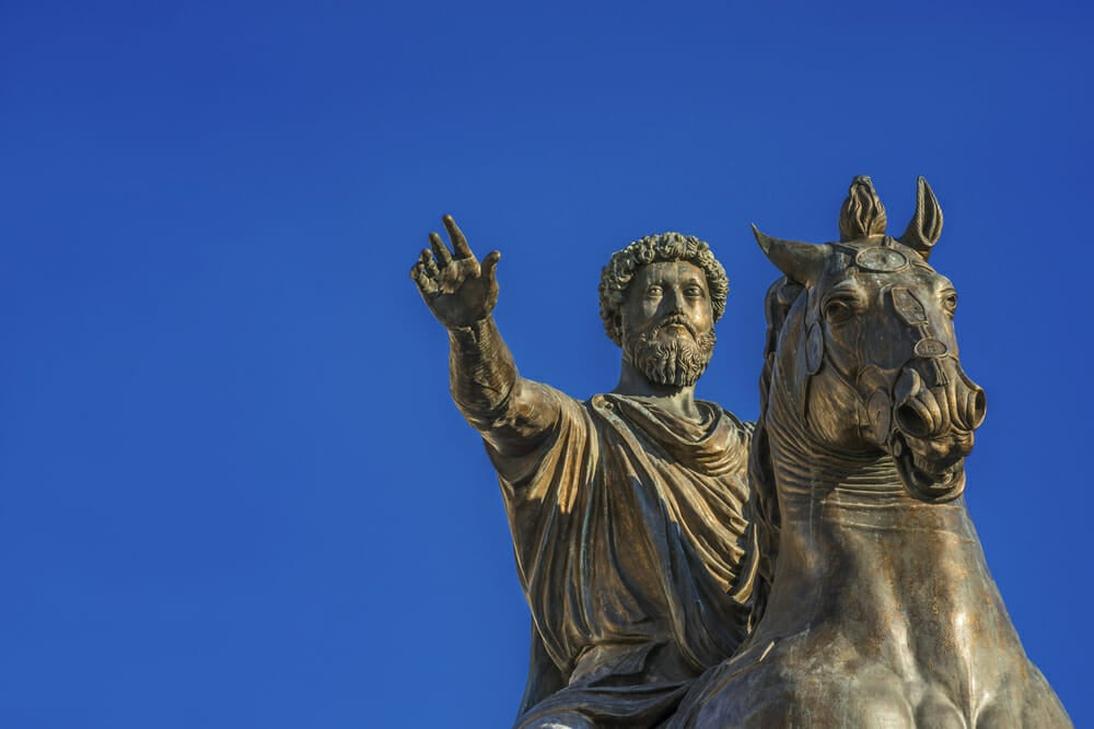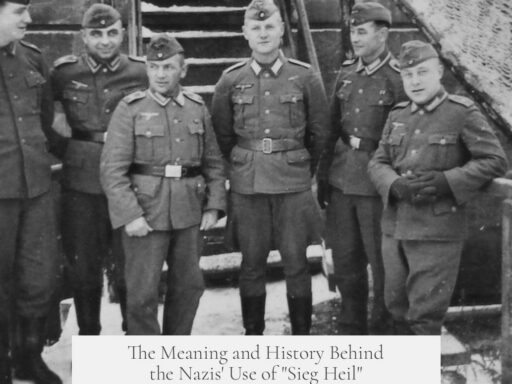Marcus Aurelius was deeply loved by the people for his uncommon combination of military leadership, personal virtue, and devoted governance. His reign, marked by defensive wars and internal stability, demonstrated a selfless commitment to Rome’s welfare that earned him lasting respect.

Marcus Aurelius spent much of his reign on the front lines, fighting difficult wars primarily defensive in nature against invading Germanic tribes. Unlike many rulers who might have enjoyed a comfortable life during conflict, he shared in the hardships faced by his soldiers. This first-hand involvement with his troops fostered a perception of selflessness. The people admired that he put duty over comfort, showing resilience during crises.
His military successes were seen as evidence that he was chosen by the gods, reinforcing his image as a capable and favored leader. Victories in defensive wars helped stabilize the empire’s borders and secure Roman territory. This success reassured citizens during a time when Rome faced major external threats. The defense of the realm justified his rule and encouraged loyalty from the people.

Beyond the battlefield, Marcus Aurelius was known for his humility and sense of justice. He was regarded as a “philosopher-king” because of his Stoic beliefs and ethical leadership. His writings, especially the Meditations, offer personal insights into his efforts to live virtuously. This connection to philosophy made him relatable and respected among subjects who saw him not only as a powerful emperor but also as a wise human being committed to understanding the human condition.
He governed with a strong sense of duty and fairness. Having served as deputy to his predecessor, Antoninus Pius, Marcus earned a reputation for trustworthiness before his reign. His policies focused on generosity and compassion, particularly toward the poor and marginalized. Efforts to alleviate poverty and assist the downtrodden underscored a commitment to improving common lives. These actions bolstered his popularity by demonstrating genuine care for the empire’s citizens.

Marcus Aurelius also maintained stability during a period of increasing turmoil in the empire. His reign is often viewed as one of the last effective and decent phases before a rapid decline. At a time when Rome was facing structural weaknesses and political instability, the people saw him as a stabilizing force. He succeeded in avoiding internal chaos and securing the empire’s prosperity relative to what came after, which made him well-loved and respected.
Sources from his time and later histories often portray him as a man dealt a difficult hand but who faced challenges with determination. Many historians, sometimes influenced by political circumstances, emphasize his virtues amidst the backdrop of Rome’s gradual collapse. The people’s admiration reflects not only his actions but also their perception of him as a last hope before the empire’s harder declines.

His strength during grim times inspired confidence and strength among citizens. The invasions he fought were external acts of aggression, not failures of leadership. Many recognized that the difficulties were beyond his control but appreciated that he brought stability and won battles crucial for survival.
- Marcus Aurelius fought defensive wars alongside his troops, demonstrating selflessness and dedication.
- He combined military success with humility and Stoic philosophy, making him relatable and wise.
- His governance emphasized fairness, compassion, and policies benefiting the poor.
- He maintained stability during a period of decline, seen as one of Rome’s last effective emperors.
- The people viewed him as a strong, just leader who faced immense challenges with courage.
Why Was Marcus Aurelius Loved by the People?

Marcus Aurelius was loved by the people primarily because of his humility, dedication, military prowess, and genuine commitment to the welfare of his subjects. But breaking that down is like unwrapping an ancient gift full of virtues, wars, philosophy, and surprisingly relatable flaws. Let’s dig into exactly what made this “philosopher-king” not just a ruler, but an admired human being.
Imagine being the emperor of Rome—a position bursting with power and luxury. Yet, instead of lounging in marble palaces sipping wine, Marcus spends years on battlefronts, sharing the misery and danger of his soldiers. That’s not your average emperor life. He fought defensive wars against Germanic tribes, often enduring harsh conditions alongside his troops. This was no pompous warlord; this was a leader who led by example. The people noticed, and it hit a chord.

The Emperor Who Fought With His Soldiers
Most rulers of empires this vast might have sent generals to battle while they enjoyed safety far from the chaos. But Marcus Aurelius was different. His wars were defensive, true, but that’s a critical detail—he was protecting the empire, not expanding it blindly. His victories against invasions sent a powerful message: this emperor wasn’t just a ruler, he was a guardian.

“Because he fought the invasion and was successful, it counted for him among the people,” notes contemporary historians. It wasn’t just about winning; it was about showing up. That willingness to endure hardship alongside the common soldier made him beloved. It’s easy to criticize leaders who hide behind security, but Marcus did the opposite.
Humility and Duty—Not Just Titles
Picture the ruler as more than a figurehead, but a deeply philosophical thinker. Marcus’s famous work, Meditations, wasn’t just ancient scribbles—it reflects a man wrestling with moral questions and the art of living a good life. His Stoic philosophy made him relatable to the people. Unlike rulers who flaunted their status, he openly acknowledged the challenges of holding power and the importance of serving others.
This is the guy people spoke about in Rome as the “best Caesar.” Not just because he strode grandly through the city, but because he was down to earth, fair, and wise. He wrote about self-discipline and virtue. That intellectual approach to governance inspired confidence and respect.
Governance With Compassion
Marcus didn’t just defend Rome with the sword; he cared for Rome’s soul. He had served as a deputy to his predecessor Antoninus Pius, gathering experience and earning trust before becoming emperor. That long apprenticeship grounded him in responsibility.
He aided the poor and downtrodden, implementing policies to ease poverty. That’s not a detail to skip over. Rome was a complex empire with vast inequalities. Marcus’s generosity helped stabilize society and brought some prosperity during turbulent times. The people recognized this. Generosity paired with military strength made a fierce yet benevolent ruler.
Historical Context: A Beacon in Dark Times
Let’s get real. Rome’s glory days were fading during Marcus’s reign. After him, things took a nosedive with corrupt and unstable rulers. The people looked back and saw Marcus as their “last hope” before chaos set in.
Even historians who wrote about him were likely influenced by their place in society or political agendas. Yet, the overwhelming picture remains one of a ruler who faced relentless challenges with determination and grace.
What if Marcus Aurelius had been born in calmer times? Would he still be celebrated? Probably. His strength and resilience became emblematic because he held Rome from collapsing amid invasions and political chaos. The invasions were no fault of his, but his response gave people courage.
Strength Beyond Circumstances
It’s easy to judge rulers by successes and failures. But Marcus showed that character matters even when the world is falling apart. He brought stability when it was needed most, fought successfully, and coped with responsibility without losing his humanity.
The public saw all this. That’s why Marcus was far better than most emperors before or after him, and that’s why he remained loved.
Lessons from Marcus Aurelius Today
What can we learn? Leaders matter—but true leadership means showing up, sharing the struggle, and governing with humility. Whether in a modern company, a small community, or even in personal life, Marcus’s example reminds us that strength paired with compassion wins respect.
He also proves that philosophy isn’t just for scholars. His Stoic meditations guided real-world decisions. This mix of wisdom and action made him exceptional.
In Summary
- Military Defender: Fought alongside troops in defensive wars, protecting the empire.
- Philosopher-King: Embodied Stoic virtues, showing humility and wisdom.
- Compassionate Governor: Implemented policies aiding the poor and maintained stability.
- Historical Beacon: Seen as the last decent emperor before Rome’s decline.
- Personal Integrity: Chose duty over luxury, inspiring loyalty and love from the people.
Marcus Aurelius wasn’t perfect, but his blend of strength, wisdom, and genuine care for his people makes him a timeless figure. The “last hope” for Rome? Maybe. But certainly a man who earned the love of his people by living the hard truth of leadership, not just speaking it.
Next time you wonder why some leaders inspire loyalty, think of the Roman emperor who marched to the front lines, wrote deeply personal reflections, and governed with both sword and soul.




